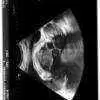-
Welcome to Celiac.com!
You have found your celiac tribe! Join us and ask questions in our forum, share your story, and connect with others.
-
Celiac.com Sponsor (A1):
Celiac.com Sponsor (A1-M):
-
Get Celiac.com Updates:Support Our Content
Trying To Figure Out My Sleep Problem
-
Get Celiac.com Updates:Support Celiac.com:
-
Celiac.com Sponsor (A17):
Celiac.com Sponsor (A17):
Celiac.com Sponsors (A17-M):
-
Recent Activity
-
- trents replied to yellowstone's topic in Gluten-Free Foods, Products, Shopping & Medications1
What foods can trigger a response in people with gluten sensitivity?
Welcome to the forum, @yellowstone! The most common ones seem to be dairy (casein), oats, eggs, soy and corn. "Formed" meat products (because of the "meat glue" used to hold their shape) is a problem for some. But it can be almost anything on an individual basis as your sensitivity to rice proves, since rice is uncommonly a "cross reactor" for celiacs. Some... -
- yellowstone posted a topic in Gluten-Free Foods, Products, Shopping & Medications1
What foods can trigger a response in people with gluten sensitivity?
What foods can trigger a response in people with gluten sensitivity? I've read that there are foods that, although they don't contain gluten, can cause problems for people with gluten sensitivity because they contain proteins similar to gluten that trigger a response in the body. I've seen that other cereals are included: corn, rice... also chicken, casein...
-





Recommended Posts
Archived
This topic is now archived and is closed to further replies.